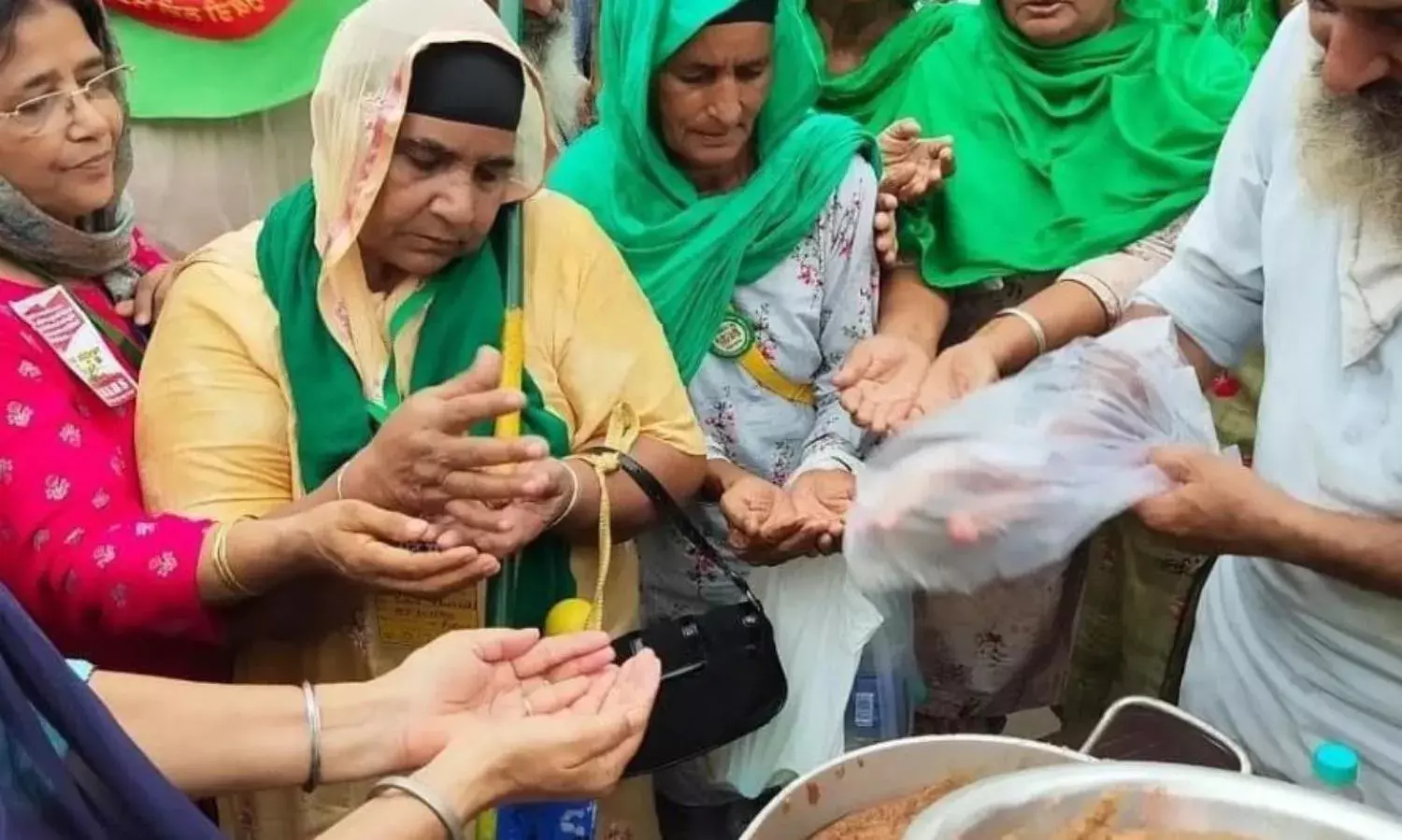Women Farmers Come To Delhi to Hold Their Own Parliament
Mahila Kisan Sansad;

A group of 200 women farmers stand outside the Jantar Mantar, singing the national anthem and raising slogans against the three controversial farm laws.
As the ‘Kisan Sansad’, the farmers protest outside the Parliament during the ongoing monsoon session, completes three days, women have taken the central stage.
The farmer’s union had decided that they will host their own parliaments to discuss issues that pertain to them, agriculture and the three controversial farm laws. Every day under the ‘Kisan Sansad’, a fresh batch of 200 farmers would head to Delhi from the Delhi borders, where they have been protesting for the past eight months.
On 26th July 2021, a group of 200 women farmers took off to Delhi to host the first-ever Mahila Kisan Sansad.
Women have been at the forefront of this ongoing agricultural protest and have been active stakeholders.
Jaspreet Kaur, a farm leader in a conversation with The Citizen, said that two days, 26th July and 9th August, have been earmarked for the women’s parliament.
“Ever since the protest has started, women have been fighting from the forefront. In society, women are not recognized as farmers, and their work on the farm is not recognized. 18th January was also, similarly, observed as ‘Mahila Kisan Divas’ to recognize women as farmers,” she told the Citizen.
Along the way, they raised slogans against the three farm bills and for women’s power.
Another woman, Navkiran Natt, who is part of the 200 women farmers group, said that this is the first time women farmers and their labour have been recognized.
“Women have a 50 per cent participation in agriculture, yet, neither the state nor does the society, acknowledges their labour. This is the first time women farmers have been acknowledged,” she told The Citizen.
Every day, along with protesting against the three farm laws, the farmers would be raising specific issues and demands.
For women’s parliament, they would be discussing the 1955 Essential Commodities Amendment Act in detail.
“We want to reiterate that the three farms laws are not just anti-farmers but anti-women and are anti-citizen too. In Indian households, running the kitchen has been a women's job and the essential commodities act along with increasing fuel prices endanger the already squeezed budget of the majority of the people. It is not just a question of short or prolonged inflation, but of deregulation. Hence freeing the govt. from any possible political or to be precise electoral repercussion. This altogether makes a case that everyone is going to be affected invariably by these laws, and as the social structure goes, women will have to shoulder the bigger share of this burden, even in non-farming families,” Navkiran added.
The women have also been accompanied by a few children, who have been living with them at the farmer’s protest site.
“Wherever there would be women, kids would accompany. They have been living at the border, studying, taking online classes from there. They are also aware of the protest,” she added.

